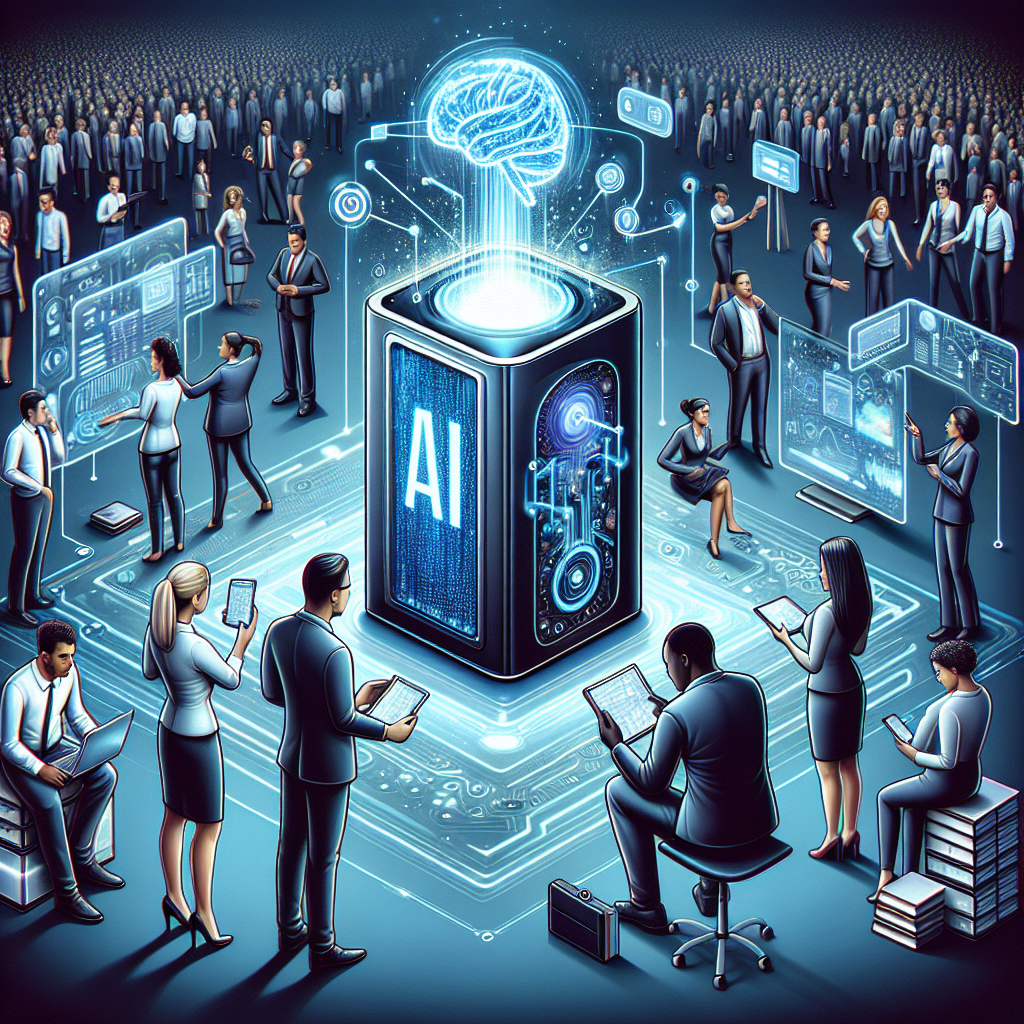Artificial intelligence (AI) has been revolutionizing industries across the globe, offering businesses the opportunity to automate processes, streamline operations, and improve efficiency. As AI technologies continue to advance, more companies are turning to outsourcing to harness the power of AI without the need for in-house expertise. However, while AI outsourcing offers numerous benefits, it also has the potential to significantly impact workforce dynamics.
The Impact of AI Outsourcing on Workforce Dynamics
1. Job Displacement:
One of the most significant impacts of AI outsourcing is job displacement. As companies adopt AI technologies to automate tasks that were previously performed by humans, there is a risk of job loss for workers whose roles are no longer needed. This can lead to unemployment and economic instability for affected individuals and their communities.
2. Skill Shift:
With the rise of AI outsourcing, the demand for certain skills is shifting. While some jobs may be eliminated, new roles are being created to support AI implementation, management, and maintenance. Workers will need to acquire new skills to remain competitive in the changing job market, such as data analysis, programming, and AI development.
3. Workplace Culture:
AI outsourcing can also impact workplace culture by changing the way teams collaborate and communicate. As AI technologies take on more tasks, human workers may find themselves working alongside machines, leading to shifts in team dynamics, job roles, and performance expectations. Companies will need to adapt their organizational structure and culture to support a hybrid workforce of humans and AI.
4. Employee Morale:
The introduction of AI outsourcing can also affect employee morale and job satisfaction. Workers may feel anxious about the potential for job loss or fear that AI technologies will replace them. It is essential for companies to communicate openly with employees about the impact of AI outsourcing and provide training and support to help workers navigate the changes.
5. Productivity and Efficiency:
Despite the potential challenges, AI outsourcing can also improve productivity and efficiency in the workplace. By automating repetitive tasks, AI technologies can free up human workers to focus on more strategic, high-value activities. This can lead to increased innovation, faster decision-making, and improved business outcomes.
FAQs
Q: Will AI outsourcing lead to widespread job loss?
A: While AI outsourcing may result in job displacement for some workers, it can also create new opportunities for skilled professionals in AI development, data analysis, and other related fields. Companies should focus on upskilling their workforce to prepare for the changing job market.
Q: How can companies mitigate the impact of AI outsourcing on workforce dynamics?
A: Companies can mitigate the impact of AI outsourcing by investing in employee training and development, fostering a culture of continuous learning, and transparent communication about the changes ahead. It is essential for companies to involve employees in the AI implementation process and provide support to help workers adapt to the new technology.
Q: What are the benefits of AI outsourcing for businesses?
A: AI outsourcing offers numerous benefits for businesses, including increased efficiency, cost savings, improved decision-making, and enhanced competitiveness. By leveraging AI technologies through outsourcing, companies can access cutting-edge capabilities without the need for in-house expertise.
In conclusion, the impact of AI outsourcing on workforce dynamics is complex and multifaceted. While AI technologies have the potential to transform industries and drive innovation, they also raise important questions about job displacement, skill shifts, workplace culture, and employee morale. Companies must navigate these challenges thoughtfully and proactively to ensure a smooth transition to a future where humans and AI can work together effectively. By investing in employee training, fostering a culture of continuous learning, and transparent communication, businesses can harness the power of AI outsourcing while minimizing the negative impacts on their workforce.

